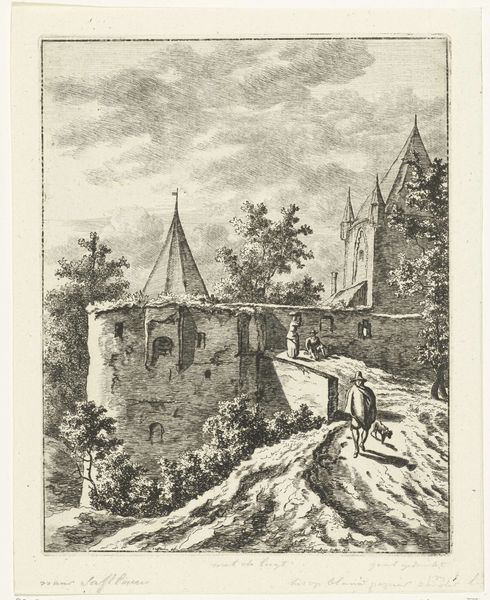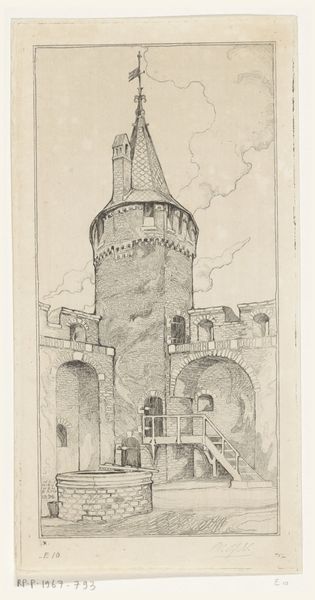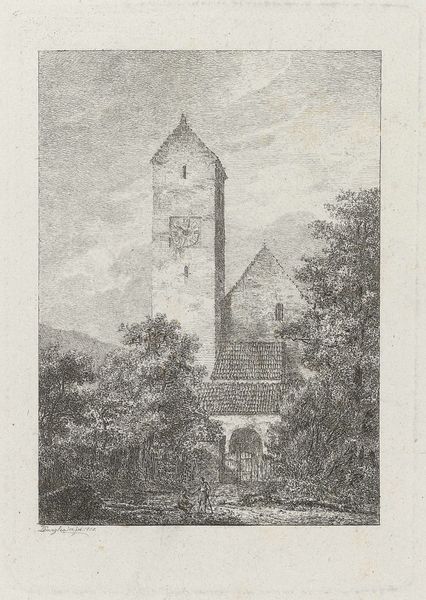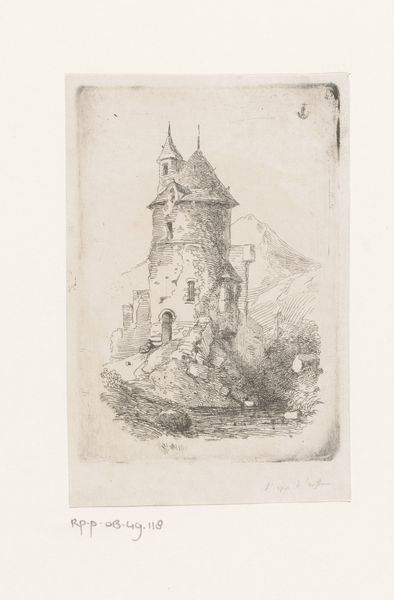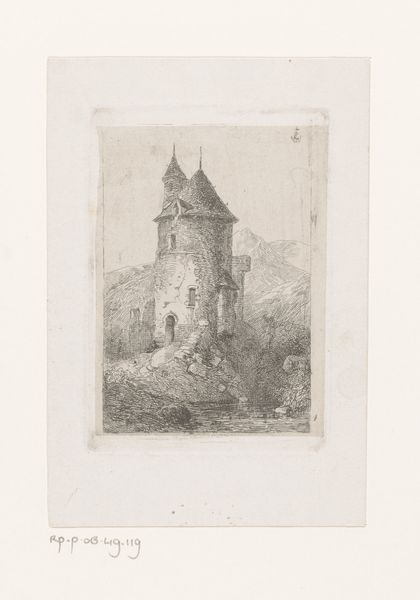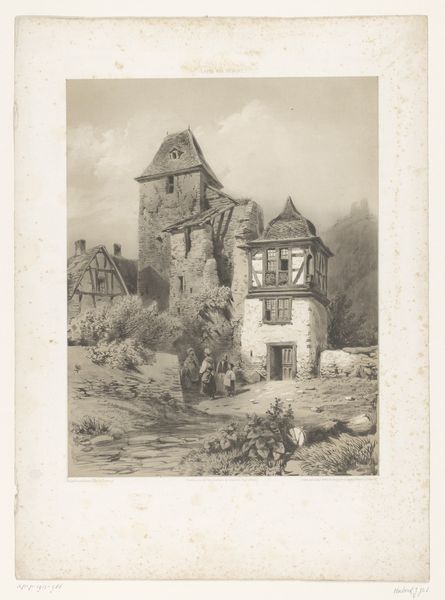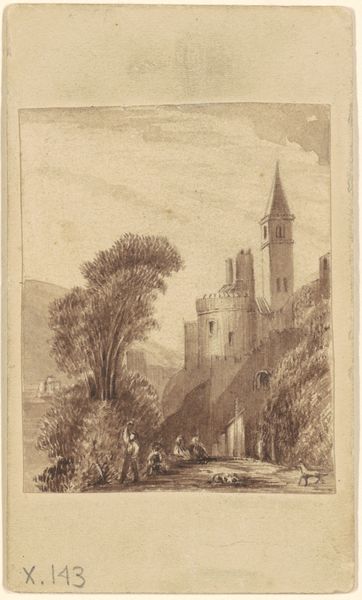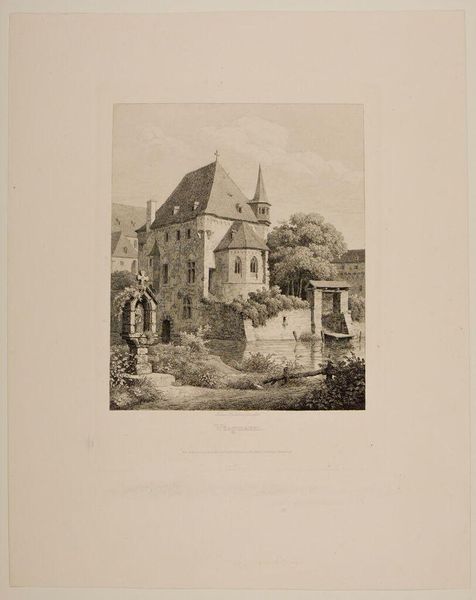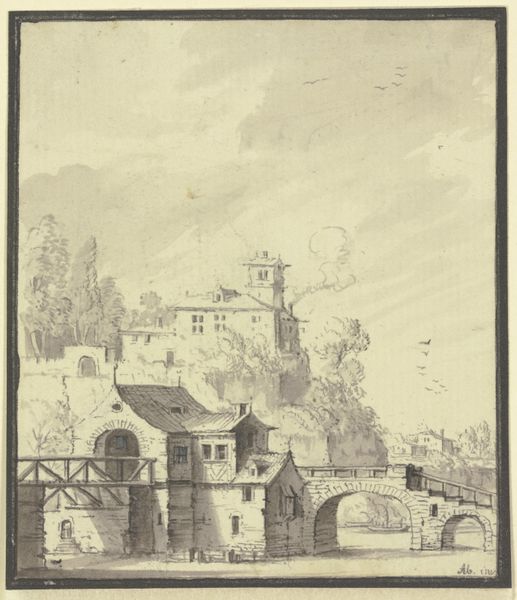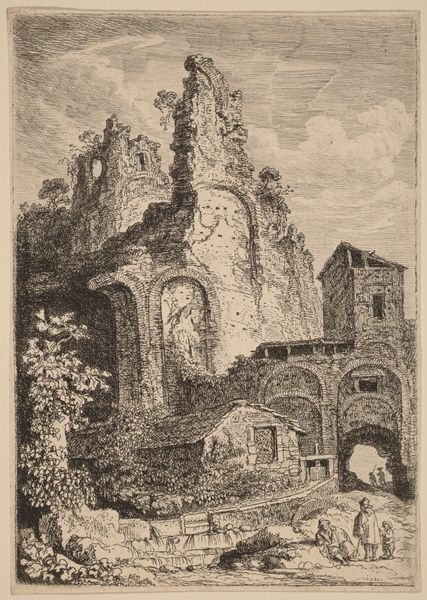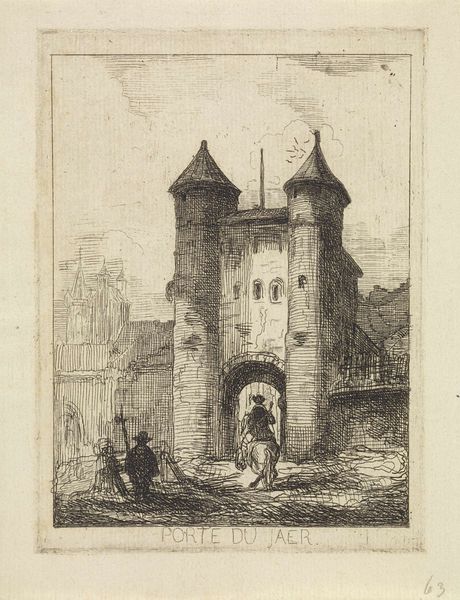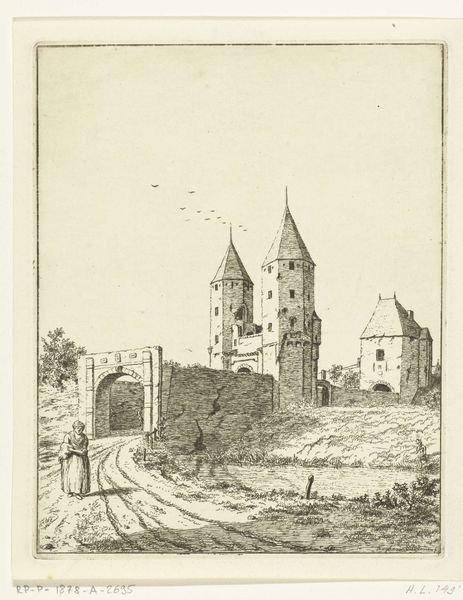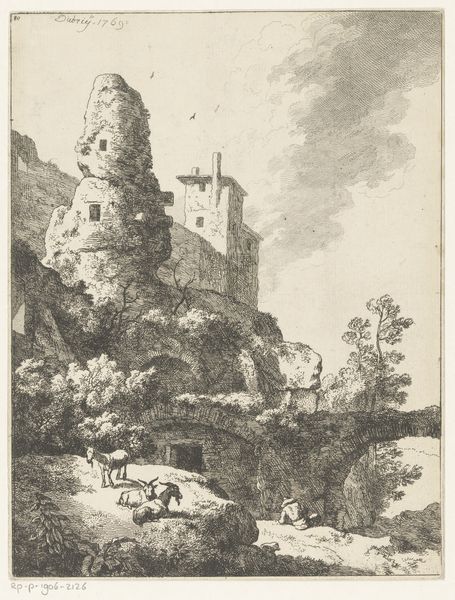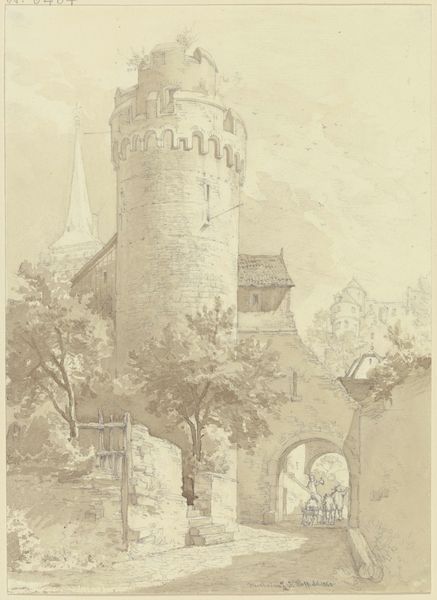
print, woodcut
#
pencil drawn
#
amateur sketch
#
toned paper
#
light pencil work
# print
#
pencil sketch
#
charcoal drawing
#
pencil drawing
#
pen-ink sketch
#
woodcut
#
pencil work
#
watercolor
Dimensions: 223 mm (height) x 149 mm (width) (bladmaal)
Editor: This is "Parti ved hal i Tyrol," a woodcut by H. C. Henneberg, from 1848. I'm struck by how detailed it is, especially for a print. It gives me a sense of serenity, almost like stepping back in time. What do you see in this piece? Curator: I see a deliberate construction of an idealized past. Look closely – it’s 1848, a year of revolutions across Europe. Henneberg offers an escape to the Tyrol, a region perceived as untouched by industrialization and social upheaval. How does the composition reinforce this sense of idyllic retreat? Editor: Well, the tower feels solid and enduring, and the small figures on the bridge seem at peace. Maybe the artist is showing a yearning for a simpler way of life? Curator: Exactly. Consider the politics of nostalgia inherent in this romanticized view. While the image presents a scene of harmony, it potentially masks the realities of life for the people who actually lived there. The 'untouched' landscape is a construct, isn't it? What stories are silenced by this picturesque vision? Editor: I hadn't thought about it that way. It's like the artist is offering a specific narrative, perhaps ignoring other truths about Tyrol. Curator: Precisely. The seemingly innocent landscape becomes a stage for understanding how power dynamics influence what is shown, and, perhaps more importantly, what is left unseen. Do you think that affects your initial reading of it? Editor: Definitely. I see now it’s not just a pretty picture, but a statement, consciously or unconsciously, about society at a tumultuous time. I’ll have to look more critically at what “escape” really means. Curator: And how these representations of place contribute to our understanding—or misunderstanding—of history and identity. Thank you for making me think about that again myself!
Comments
No comments
Be the first to comment and join the conversation on the ultimate creative platform.
